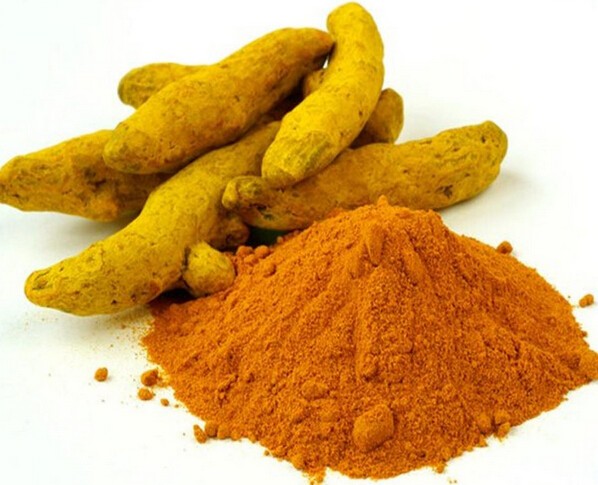Dealing with the flu and cold can be a challenging and uncomfortable experience. These illnesses often lead to a runny nose, coughing, sneezing, sore throat, and fatigue. While medical treatment is available, many people prefer natural remedies to alleviate their symptoms and boost their immune systems. This article will explore the 16 best home remedies to get rid of the flu and cold. These remedies are easy to find, affordable, and have been used for generations to combat respiratory infections.

1. Garlic
Garlic is a powerful natural antibiotic that can help fight off infections and strengthen the immune system. Its active compound, allicin, has potent antimicrobial properties. Consuming raw garlic or adding it to your meals can relieve flu and cold symptoms.
- Take a fresh clove of garlic.
- Peel and crush the garlic clove.
- Mix the crushed garlic with a teaspoon of honey.
- Consume the mixture daily to boost your immune system and promote faster recovery.
2. Echinacea
Echinacea is a herb renowned for its immune-boosting properties. It can help prevent and alleviate the symptoms of respiratory infections like the flu and cold.
Echinacea supplements or teas are widely available. Consuming echinacea regularly can enhance your body’s natural defense mechanisms, shorten the duration of your illness, and reduce the severity of symptoms.
- Purchase Echinacea supplements or tea from a reputable source.
- Follow the recommended dosage instructions on the packaging.
- Consume Echinacea regularly to enhance your body’s natural defense mechanisms
3. Honey and Lemon
A classic home remedy for colds and flu, the combination of honey and lemon can provide soothing relief for a sore throat and cough.
- Squeeze fresh lemon juice into a glass.
- Add a tablespoon of honey to the glass.
- Pour warm water into the glass and mix well.
- Sip on this mixture throughout the day to ease throat irritation and suppress coughing.
4. Ginger
Ginger has long been used for its medicinal properties and can be a valuable ally in combating flu and cold symptoms. Its anti-inflammatory and antiviral properties can help reduce congestion, soothe sore throats, and alleviate nausea.
- Purchase fresh ginger from your local grocery store.
- Peel and grate a small piece of ginger.
- Add the grated ginger to hot water and let it steep for a few minutes.
- Strain the ginger-infused water and drink it as tea.
- Alternatively, you can chew on a small piece of fresh ginger to enjoy its benefits.
5. Chicken Soup
Chicken soup has been a go-to remedy for colds and flu for generations, and good reason. It provides hydration, warmth, and essential nutrients that support the immune system. The steam from the soup can also help relieve congestion and ease breathing.
- Gather ingredients such as chicken, vegetables, and herbs.
- Prepare a homemade chicken soup by boiling the chicken with vegetables and herbs in water.
- Simmer the soup until the chicken is cooked and the flavors melded together.
- Serve a hot bowl of chicken soup to soothe your symptoms and speed up your recovery.
6. Vitamin C

Vitamin C is well-known for its immune-boosting properties. Increasing your intake of vitamin C-rich foods, such as oranges, strawberries, bell peppers, and kiwis, can help strengthen your immune system and fight off respiratory infections.
- Include vitamin C-rich foods such as oranges, strawberries, bell peppers, and kiwis in your diet.
- Consume these foods regularly to ensure you’re getting an adequate amount of vitamin C.
- Alternatively, you can take vitamin C supplements following the recommended dosage instructions.
7. Steam Inhalation
Steam inhalation is a simple yet effective way to relieve congestion and clear blocked airways.
- Boil water in a pot.
- Place the pot on a stable surface.
- Lean over the pot, ensuring your face is a safe distance away to avoid burns.
- Cover your head with a towel to trap the steam.
- Breathe deeply for several minutes to allow the steam to penetrate your nasal passages and loosen mucus.
- You can add a few drops of eucalyptus or peppermint oil to the water for enhanced benefits.
8. Probiotics
Maintaining a healthy gut microbiome is essential for overall immune function. Probiotics, beneficial bacteria, can support gut health and help prevent respiratory infections.
- Incorporate probiotic-rich foods into your diet, such as yogurt, kefir, sauerkraut, and kimchi.
- Consume these foods regularly to promote a healthy gut microbiome and strengthen your immune system.
- Alternatively, you can take probiotic supplements following the recommended dosage instructions.
9. Saltwater Gargle
Gargling with warm salt water can provide temporary relief for a sore throat.
- Dissolve half a teaspoon of salt in a glass of warm water.
- Take a sip of the saltwater mixture and gargle for 30 seconds.
- Spit out the water and repeat the process several times daily to alleviate sore throat symptoms.
10. Turmeric

Turmeric contains curcumin, which boasts potent anti-inflammatory and antioxidant properties. Adding turmeric to your meals or consuming it as a tea can help reduce inflammation and alleviate symptoms of the flu and cold.
- Purchase turmeric powder or fresh turmeric root.
- Add a pinch of turmeric to your meals or brew turmeric tea by boiling the powder or grated root in water.
- Consume turmeric regularly to reduce inflammation and ease flu and cold symptoms.
11. Rest and Hydration
One of the most important remedies for overcoming the flu and cold is to prioritize rest and hydration. Adequate sleep and plenty of fluids, such as water, herbal teas, and clear broths, can help your body recover quickly.
- Ensure you get enough sleep to support your immune system’s efforts to fight off the infection.
- Drink plenty of fluids such as water, herbal teas, and clear broths to stay hydrated and help thin mucus.
12. Essential Oils
Certain essential oils can provide respiratory support and alleviate flu and cold symptoms. Eucalyptus, peppermint, and tea tree oil are known for their decongestant and antimicrobial properties.
- Choose essential oils like eucalyptus, peppermint, or tea tree oil.
- Diffuse the oils in your home, inhale them directly, or dilute them with a carrier oil and apply them to your chest and throat area for relief from congestion and respiratory symptoms.
13. Zinc
Zinc is a mineral that is crucial in maintaining a healthy immune system. It can help shorten the duration of the flu and cold and reduce the severity of symptoms.
- Consume zinc-rich foods like oysters, beef, poultry, pumpkin seeds, and legumes.
- Alternatively, take zinc supplements under medical supervision following the recommended dosage instructions.
14. Nasal Saline Rinse
Nasal saline rinses can help clear congested sinuses and relieve nasal symptoms. Mix a teaspoon of salt with a cup of warm water and use a Neti pot or nasal spray bottle to irrigate your nasal passages. This helps flush out mucus and irritants, relieving nasal congestion and improving breathing.
- Mix a teaspoon of salt with a cup of warm water.
- Use a Neti pot or nasal spray bottle to irrigate your nasal passages with the saline solution.
- Repeat this process to flush out mucus and relieve nasal congestion.
15. Peppermint Tea
Peppermint tea is refreshing and beneficial for alleviating flu and cold symptoms. It can help relieve congestion, reduce coughing, and soothe sore throats.
- Brew a cup of peppermint tea using a tea bag or fresh leaves.
- Drink the tea hot to enjoy its soothing effects on congestion, coughing, and sore throat.
16. Apple Cider Vinegar
Apple cider vinegar is a popular natural remedy that possesses antiviral properties. It can help boost the immune system, promote detoxification, and relieve flu and cold symptoms.
- Mix a tablespoon of apple cider vinegar with warm water and honey for taste.
- Drink this mixture two to three times daily to boost your immune system and aid in the fight against the flu and cold.
FAQs
1. Can I prevent the flu and cold with these home remedies?
While these remedies can help alleviate symptoms and support your immune system, they are not foolproof for preventing the flu and cold. Practicing good hygiene, such as washing your hands regularly and avoiding close contact with infected individuals, is still the best way to minimize risk.
2. Are there any side effects to using these home remedies?
In general, these home remedies are safe for most individuals. However, it’s always a good idea to consult with a healthcare professional, especially if you have any underlying medical conditions or are taking medications. Some remedies may interact with certain medications or cause adverse reactions in some individuals.
3. How long should I try these home remedies before seeking medical attention?
If your symptoms persist or worsen after trying these remedies for a few days, seeking medical attention is advisable. Certain symptoms, such as high fever, severe coughing, difficulty breathing, or chest pain, may indicate a more serious condition that requires prompt medical evaluation.
4. Can children and pregnant women use these home remedies?
Some remedies may not be suitable for young children or pregnant women. It’s best to consult with a pediatrician or obstetrician before using home remedies, as they can provide tailored advice based on individual circumstances.
5. Should I stop taking prescribed medication if I try these home remedies?
No, you should never stop taking prescribed medication without consulting your healthcare provider. These home remedies can complement medical treatment but should not replace it. Always follow your doctor’s advice and inform them about any home remedies you are using.






